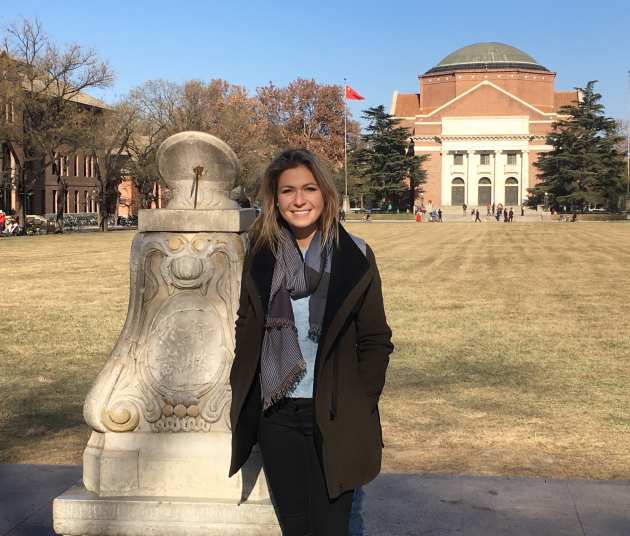Last summer, I participated in the Imperial-Tsinghua Global Fellows Programme, a jam-packed 5-day programme focused on Climate Change and Energy, held at Easthampstead Park in the UK. The programme included a mix of students from both Imperial and Tsinghua University. This was a good opportunity to compare attitudes toward these environmental issues and begin to learn something about how our different cultural perspectives and experiences might shape our points of view.
My PhD research focuses how to develop regulations for the nascent shale gas industry in the UK by analyzing the experiences of other countries, including the United States and Europe. The pollution present in China’s large cities is well known, and I knew that China was looking for ways to move away from dependence on coal. In light of my own research, I wanted to learn more about how China proposes to develop its extensive shale gas reserves and particularly how their government’s approach to management of resources differs from other locations, including the UK and USA.

During my week at Easthampstead Park, I found informal conversations with Tsinghua students about their attitudes toward shale gas development interesting and convinced me that I could benefit from visiting China to learn more. Much of my research looks at how citizens in a community—and their knowledge of a technology—can influence a proposed project. I hoped to learn more about public—as distinct from government—attitudes toward shale gas in China.
I was able to spend a few weeks in December in Beijing. My research placement was in Tsinghua’s School of Law, with a professor who is also a prominent environmental lawyer. I understand from the department that I was the first Imperial student accepted for a research visit and, as the invitation was to the School of Law, it was considerably different than other students who joined research teams. Also, I do not know Mandarin, so there were considerable limits to what I could accomplish during my short stay.
During our first meeting, my host supervisor described his research on environmental and energy law in China. Then he encouraged me to spend my short time in China learning as much as possible about Chinese culture so I could begin to understand something about the context of the research issues I was studying. Next, he introduced me to Anna, an exchange student from McGill University (where I did my undergraduate studies!) and who speaks excellent Chinese. Her help and support made a considerable difference in the success of my visit. She helped me with logistical issues, such as arranging a meal card so I could have meals with my new Tsinghua friends on campus, and also a library card to access books and other resources in the School of Law library. I was surprised to see how many books in English were available.
It was also helpful that I knew several Tsinghua students from Easthampstead Park. I decided that in addition to learning as much as I could about Beijing, I would also use my contacts—new and old—to arrange informal interviews on perceptions of shale gas. I also attended events on environmental and energy issues, where I conducted still more informal interviews on perceptions of gas development, and also learned about the new regulations on coal burning in China, which people said had made a large impact on improving the air quality in Beijing. One particularly interesting event was a bilingual English and Chinese energy-themed trivia night, held by Beijing Energy Network and Environment China. My host supervisor also introduced me to some of his undergraduate students, one of whom took me on a bike tour of the campus after our day of studying in the library—yet another chance for me to learn about life as a Chinese student in Beijing. Another highlight was a reunion dinner with my friends from the Tsinghua-Imperial Global Fellows Programme.
My research visit to Tsinghua University and my placement at the School of Law was a valuable experience. I am grateful to the Graduate School for supporting my research visit. I learned a lot about Chinese culture—and about the different types of cuisine from Tsinghua’s 17 canteens and from other restaurants in Beijing! I am also very grateful to the Tsinghua students—both those that I had met on the summer programme and the new friends I made during the placement—for making me feel so welcome during my stay. I hope to have the opportunity to go back to Tsinghua, and also to explore other cities in China.
"It was also helpful that I knew several Tsinghua students from Easthampstead Park. I decided that in addition to learning as much as I could about Beijing, I would also use my contacts—new and old—to arrange informal interviews on perceptions of shale gas. "